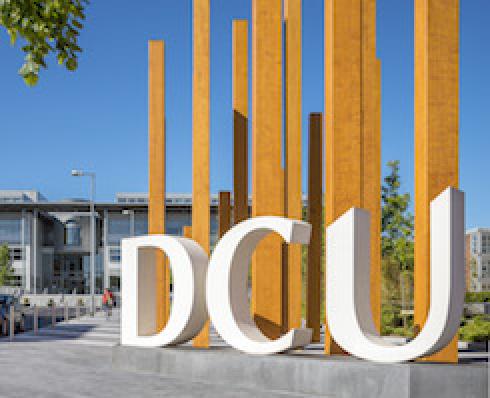

About FHSS Doctoral Studies
Click here to find out more about doctoral studies at the Faculty of Humanities and Social Sciences and other research activities at DCU, meet our current students and explore relevant information on postgraduate research student life.

How to Apply
The webpage for the DCU’s Graduate Studies Office contains all the information you’ll need to make an application for PhD studies.
Visit the Graduate Studies Office PhD Applications page
If you are a non-EU student, you will have additional questions about, for example, recognition of qualifications, English language requirements and so on. To learn more about this, follow this link to the DCU Postgraduate Admissions page.
For information on fees, see Fees Information for Postgraduate Research Students.
You probably have other questions about what it’s like to be a PhD student in the Faculty of Humanities and Social Sciences and how to navigate some of the logistics if you are moving to Ireland. To help you with these, we’ve created an FAQ page with answers to common questions and advice from existing students.

PhD Training
Apart from undertaking your own research, you will also have access to many additional training opportunities as a PhD student in the Faculty of Humanities and Social Sciences.
Graduate Training Elements
Each school has a list of modules, called Graduate Training Elements (or GTEs) that are available to PhD students. Depending on the school, some are compulsory and others optional. You should discuss with your supervisor which modules are required and which are optional and when you should take them. For a list of the current GTE pathways on offer from each school, see the relevant link below.
- School of Applied Language and Intercultural Studies
- School of Communications
- School of English
- Fiontar & Scoil na Gaeilge
- School of History and Geography
- School of Law and Government
- School of Theology, Philosophy, and Music
Graduate Studies Office
The Graduate Studies Office offers a great array of general training courses for all PhD students, e.g. writing support, research integrity, well-being etc. For more details see this link and this one.
School Research Seminars
Each semester, schools organise research seminars covering a wide range of topics of interest. These seminars are open to both staff and students. For more information, details can be found here and will also be shared via email.
Faculty Seminars
In addition to the research seminars organised by each school, the faculty offers seminars on a variety of topics throughout the year, such as funding applications, open access publishing, research impact, and more. Information about these seminars will be shared via email.

Find a Supervisor
How do you find an appropriate supervisor for your PhD?
Please see this link for a general overview of the PhD application process at DCU. We highly recommend that you read through that content first.
PhD students come to us through lots of different routes, but here is some general advice on finding a supervisor.
Approaching a Potential Supervisor
- Familiarise yourself with the areas of expertise within the School you are interested in. From each School page, you will find a link to our staff. By clicking on their profiles you can see the broad areas that each staff member is active in.
- Click on their publication lists and review the topics they publish in. We recommend that you read some of these publications too before approaching a member of staff as a supervisor.
- When you find somebody who seems to be aligned with your general interests, feel free to approach them by email. Alternatively, you could reach out to the research convenor in each School for advice.
- We recommend that you do not reach out to multiple members of staff at the same time, unless you make it clear to all that you have done so. Make sure that you have identified a potential supervisor who really has an interest in your general domain, as suggested by their teaching and/or research activity. If you are not sure, you can ask them more questions about their research interests.
Information on our Faculty's research contacts are available here
Your PhD Proposal
You are not expected to have a fully polished PhD proposal when you make first contact. However, it is a good idea to have a short draft of a proposal and to think through some of the following questions before you contact a supervisor:
- What is your topic about, broadly speaking?
- How does it fit with the profile of the potential supervisor?
- Why are you interested in this particular topic?
- What is your previous background and how does it make you suitable for a PhD?
- What do you ultimately want to get out of a PhD?
- Why are you interested in DCU, the Faculty and this School?
- What is your expected start date? Are there any dependencies, e.g completion of a Master’s degree?
- Have you already secured funding?
- Have you checked that you meet the entry requirements for a PhD at DCU in general?

Frequently Asked Questions
Find answers to some of the most commonly asked questions about your PhD at DCU.

Our Alumni
Our PhD graduates work all over the world in academia, government, the tech sector and other spheres.

More About Our Faculty
Learn more about the Faculty of Humanities and Social Sciences.
Catch up on recent FHSS news and events.

